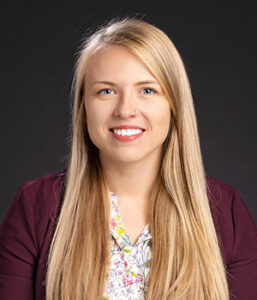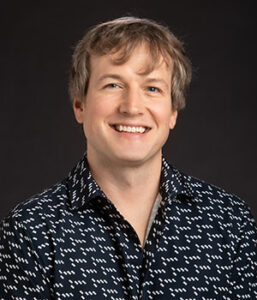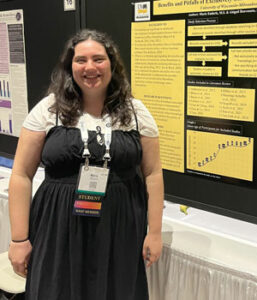Educational Psychology: School Psychology PhD
School psychology is not only a fulfilling career path — it’s also a growing and in-demand profession.
Program Type
Doctoral
Program Format
On Campus
Why Choose Our Program?
- The School Psychology Program adheres to American Psychological Association and National Association of School Psychologists guidelines for graduate training. Both degree programs are NASP-approved, and the PhD program is also accredited by the APA.
- Our beautiful campus — just blocks from Lake Michigan, 15 minutes from downtown Milwaukee and 90 minutes from Chicago — ensures plenty of internship and networking opportunities.
- You’ll work alongside internationally known faculty who are leaders in their field and have the opportunity to play in active role in faculty research.
- UWM is Wisconsin’s most diverse university and has more than 50 years of training school psychologists who are multiculturally competent and prepared to work in urban settings.

The U.S. Bureau of Labor Statistics predicts employment of school psychologists will continue to grow because of an increased awareness of the connection between mental health and learning. These workers also will be needed to help students whose educational, behavioral or developmental issues affect their ability to learn.
At UWM, you’ll develop the skills and knowledge you need to succeed in this growing field. The Department of Educational Psychology offers a PhD degree program with a concentration in School Psychology. Our School Psychology PhD students gain a broad theoretical background, as well as evidence-based clinical skills through didactic, field placement, practica and internship experiences.
With a strong urban mission, our program is dedicated to increasing knowledge, sensitivity and awareness of practices best suited for individuals from diverse socio-cultural backgrounds. We use a scientist-practitioner model and emphasize principles of biological, psychological, cultural and sociological sciences as applied to urban schools, mental health and educational settings.
Program Handbooks
Learn more through our program handbooks, which describe the program models, entry requirements, objectives, typical course of study and completion requirements in detail.
Program Data
Student Admissions, Outcomes, and Other Data Tables (PDF)
Student Support and Program Costs
Doctoral students are eligible to apply for research and project assistantships and fellowships through UWM’s Educational Psychology Doctoral Program and through the Graduate School. The doctoral program provides assistantships to approximately five students in the department each year; typically two students in the School Psychology program are funded through this mechanism.
The faculty also seeks other funding, which provides for additional student support. Faculty members in the School Psychology program have been highly successful in attaining extramural funding and have received more than $7 million in federal grant funding since 2002. Tuition information may be found on the One Stop Enrollment and Financial Services website.
Licensure
All graduates of our program have received certification as school psychologists from the Department of Public Instruction or similar Departments of Education in the states in which they reside.
Career
The internship required for the School Psychology PhD degree is typically a paid internship occurring for one-year on a full-time basis.
Graduates of the EdS and PhD program over the past 20 years have a 100% job placement rate. Most EdS students secure a school psychologist position in Wisconsin; some seek and secure positions out-of-state. Most interns continue employment as school psychologists in the same school district upon completion of their internship.
Doctoral students apply for internship positions in varied settings (schools, community clinics, hospitals, day treatment centers) including school-based school psychologist and pre-doctoral psychology intern positions through Association of Psychology Postdoctoral and Internship Centers.
Our School Psychology PhD graduates are employed in a broad range of school psychology and psychology roles in school, clinical, and academic/university positions.
The Graduate School provides a range of resources for student professional development on its website.
The School Psychology PhD program adheres to a scientist-practitioner model of training and is designed to fully integrate psychological theory with rigorous research and professional practice skills. We aspire to develop evidence-based practitioners and researchers and are committed to training multiculturally competent school psychologists. We are very proud about our APA-accredited and NASP-approved School Psychology program and hope you’ll consider joining us!
Program Requirements
The School Psychology PhD program has five major goals. It aims to prepare school psychologists to:
- Design and implement evidence-based therapeutic interventions that meet the mental health and educational needs of children, adolescents and families.
- Engage in problem-solving consultation within and across schools and community settings with families and professionals to enhance the competencies and resilience of youth and to promote healthy home, school and community environments.
- Conduct comprehensive assessments that are directly linked to interventions aimed at improving understanding and outcomes of youth, families and schools.
- Provide service delivery and to conduct research that reflects APA and NASP ethical and professional standards.
- Conduct, interpret, critique and disseminate high quality scientist-practitioner research that advances the field of school psychology in urban settings.
Application Process
Below you will find the application process for the doctoral specialization in School Psychology. All applications must be completed fully online through the UWM Graduate School’s Panthera Application System.
- Final Deadline for Fall Admission: Final application deadline is Dec. 15 for Fall admission.
A selected pool of approximately 10 applicants will be invited for a phone or in-person interview to take place each February for admission to the following Fall semester.
Note: The program requires three letters of recommendation. These letters must be submitted through the application’s electronic recommendation feature by the recommenders themselves. Letters uploaded or sent by the applicant will not be accepted.
Note: Per Wisconsin Department of Public Instruction regulations, a criminal background check is required prior to official admission to the program. Applicants to whom admission is offered will receive instructions for completing the criminal background check.
Faculty/Staff
- Associate Professor, Educational Psychology
- Program Director, School Psychology MS/EdS
- kwonk@uwm.edu
- Enderis Hall 721
- Kellner Professor, Educational Psychology
- Program Director, School Psychology PhD
- Training Director, School Psychology EdS/PhD
- kstoiber@uwm.edu
- Enderis Hall 775
PhD Students
- PhD Student, Educational Psychology: School Psychology
Kyongboon Kwon, PhD, Associate Professor
Dr. Kwon’s research focuses on children’s peer socialization in schools. She focuses on children’s naturally occurring peer groups (e.g. cliques, friendship groups, classroom) and their effect on children’s social, emotional and academic functioning. For example, she examines peers as an evaluator of others’ emotional characteristics and how they are related to social/behavioral and academic outcomes. She also examines how children regulate peers’ emotions and how theirs is regulated by others through social interactions.
Karen C. Stoiber, PhD, Kellner Professor
Dr. Stoiber’s research interests include examining evidence-based approaches to promoting early literacy, social competencies and implementation of multi-tiered intervention models. Research questions she explores include: How can teachers’ intentional focus on children’s self-control and social competence improve student engagement and academic achievement? How can school psychologists promote student mental health and reduce the achievement gap through multi-tiered systems of support? She co-founded the APA Division 16 Task Force on Evidence-Based Interventions in School Psychology and founded the Translation of Research to Practice Working Group.








